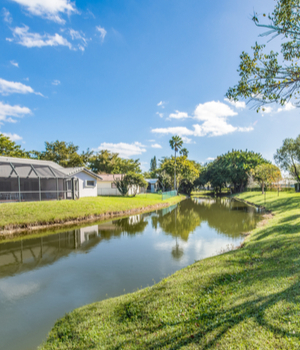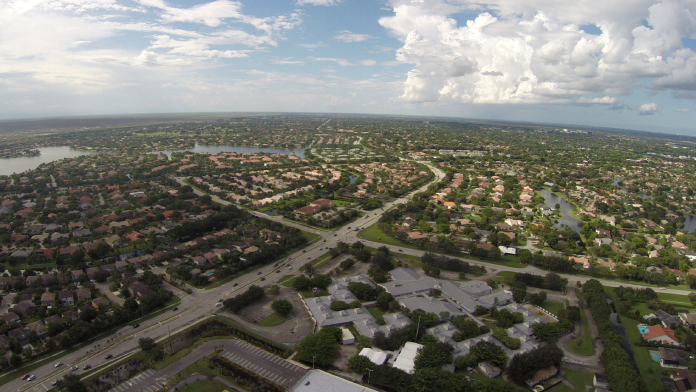Expert Insights
I recently learned that a woman in Coral Springs is sending care packages, called LIFE BOX, to people struggling with addiction and mental health. The boxes contain items like journals, notes, and other supportive items to help those in crisis to feel supported. I believe that if we spent more time providing these kinds of services instead of stigmatizing people struggling with substance use disorder, then we might be able to show these individuals that they matter. People who struggle with addiction feel so low and worthless — which is often reinforced by society and even doctors without addiction training — that they don’t think they have anything to live for. I’ve seen the opposite to be true. I’ve personally witnessed individuals transform their lives and go on to be successful and happy and support others. It does make you wonder how things in Coral Springs might be different if we showed a little more compassion.
~ Olivia Pennelle
Paying for Alcohol and Drug Rehab in Coral Springs, FL
 According to the Substance Abuse and Mental Health Services Administration, you’ll find 20 addiction treatment facilities within 10 miles of Coral Springs. Most, if not all, of these facilities, accept multiple forms of payment, including health insurance. Some also offer payment assistance and reduced-cost services to financially eligible individuals.7
According to the Substance Abuse and Mental Health Services Administration, you’ll find 20 addiction treatment facilities within 10 miles of Coral Springs. Most, if not all, of these facilities, accept multiple forms of payment, including health insurance. Some also offer payment assistance and reduced-cost services to financially eligible individuals.7
Low-Cost and Free Addiction Treatment in Coral Springs
If you’re seeking low-cost or free alcohol or drug rehab in Coral Springs, facilities that may be able to help you include:
- State-funded treatment centers: These facilities get funding from federal, state, and county governments to provide care at little to no cost for uninsured local residents who can’t pay for rehab.
- Methadone clinics: These facilities provide medication-assisted treatment (MAT) for opioid-use disorders. Depending on the facility, services may be provided regardless of a person’s ability to pay.
- Sliding scale facilities: These facilities use a variable fee scale that discounts patients’ treatment costs based on their income. Some facilities have a minimum fee, while others provide free care for people with very low or no income.
- Non-profit treatment centers: Many non-profit facilities offer various forms of payment assistance to qualifying individuals and do not turn away patients who lack the means to pay.
A few of your options for low-cost or free drug or alcohol rehab in Coral Springs and the surrounding areas include:7
- Broward Addiction Recovery Center
- Evolutions Treatment Center
- Indi Heart and Mind Inc.
To find other Coral Springs alcohol rehabs that offer discounted or free treatment, you can contact each facility you’re interested in to ask if they offer any type of financial aid you can qualify for.
Alcohol and Drug Use Statistics in Coral Springs, FL
According to data collected by the Florida Department of Health in Broward County:3,4,5,6
Traveling for Drug and Alcohol Rehab in Coral Springs
If you’re considering Coral Springs drug rehabs and currently live elsewhere, getting to and around the city is exceedingly easy. You’ll also have access to plenty of attractions both within the city and in the surrounding areas.
Attractions: Coral Springs’ outdoor attractions include its International Peace Garden, Tall Cyprus Natural Area, Orchid Park, Helena Ramsey Memorial Garden, and Sawgrass Nature Center. The city also borders Everglades National Park. Other area attractions include the Coral Springs Museum of Art, Butterfly World, Parkland Farmers Market, and several highly rated golf courses.
Accommodations: Whether you’re looking for budget lodging or a luxury suite, you’ll find dozens of hotel options both in and near the city.
Getting There: Fort Lauderdale-Hollywood International Airport is roughly 25 miles from Coral Springs. Other major airports within an hour’s drive of the city include West Palm Beach International and Miami International.
Getting Around: Coral Springs’ city center is highly walkable and bikeable, but you can also use the city’s community bus service on weekdays, which has two routes that’ll get you elsewhere around town.
Resources
-
-
- Centers for Disease Control and Prevention, National Center for Health Statistics. CDC Wonder Online Database. (2021). Underlying Cause of Death, 1999-2020 Results, Deaths occurring through 2020.
- The Florida Legislature. (2021). The 2021 Florida Statutes. Chapter 893, Drug Abuse Prevention and Control.
- Florida Department of Health. (n.d.). Substance Use Dashboard Overview.
- Florida Department of Health. (n.d.). Substance Use Dashboard Risk Behaviors.
- Florida Department of Health. (n.d.). Substance Use Dashboard Prescriptions and Treatment.
- University of Florida Health, Florida Drug-Related Outcomes Surveillance & Tracking System. (n.d.). Florida Drug-Related Deaths 2016-2019.
- Substance Abuse and Mental Health Services Administration. (n.d.). FindTreatment.gov.
- Benefits.gov. (n.d.). Florida Medicaid.
- U.S. Department of Health & Human Services. (2014, September 11). Who is eligible for Medicare?
- City of Coral Springs. (n.d.). Community Bus.
-


